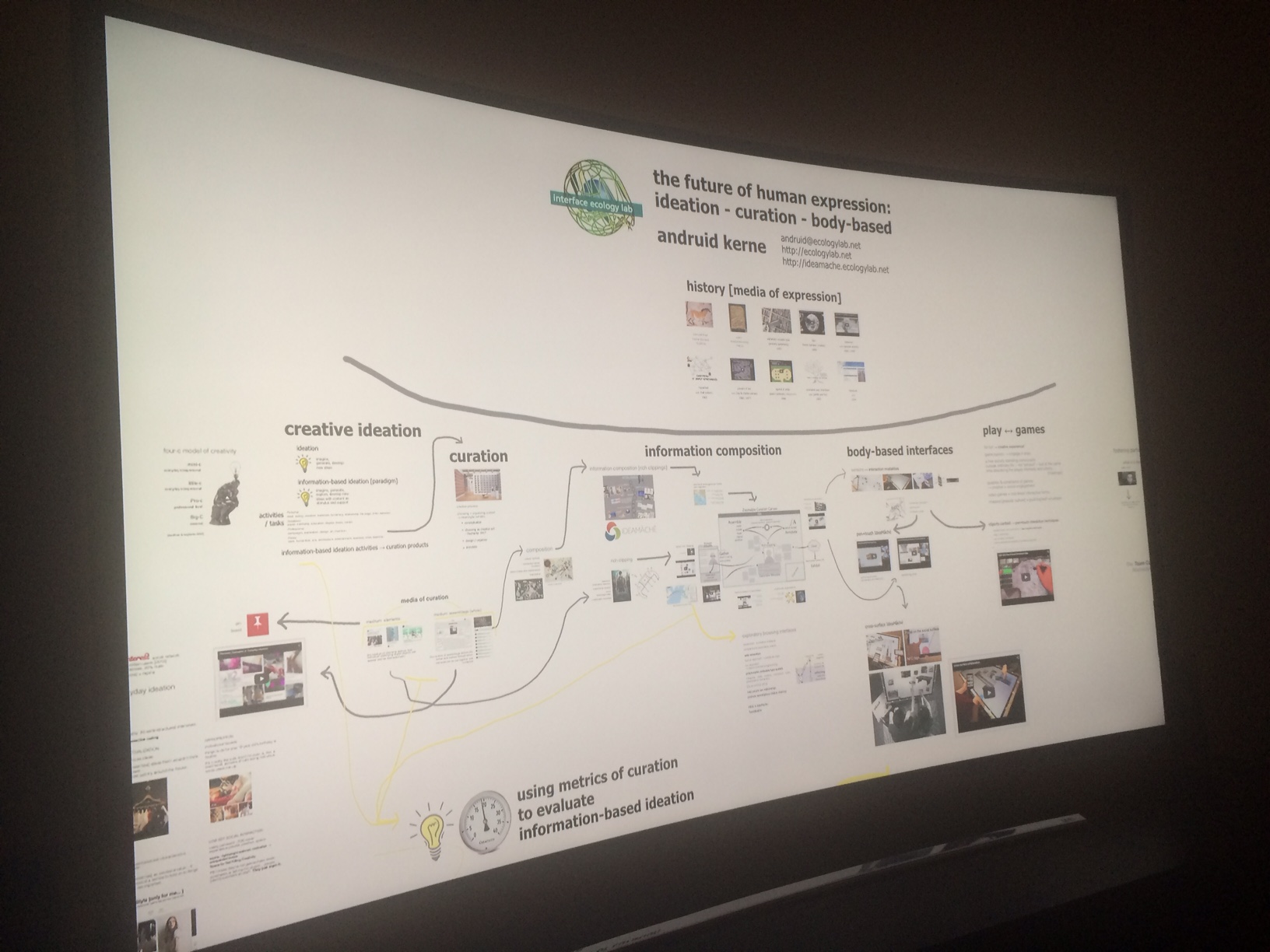<!–Speaker: Andruid Kerne, Texas A&M, USA
Date/Time: 2-3pm June 26, 2015
Location: CS1.33a, University of St Andrews–>
 Abstract:
Abstract:
Centuries ago, the technology of movable type vaulted human consciousness and expression from oral performance—improvisational— to writing, fixed by letters and words. The Interface Ecology Lab investigates new technologies that transform human expression. We engage the human body with the digital. We use cloud and web to maximize impact. We investigate how curation, exploration, and body-based interaction support expression and ideation.
Ideation is the generation, expression, and development of new ideas. Curation means to gather, assemble, and annotate content to form exhibits. People perform curation as they engage in information-based ideation tasks, in which content serves as stimulus and support for creativity. We invented information composition, a new, freeform, medium of curation, pushing beyond print’s linearity and hypertext’s text-centricity. We develop the medium of information composition through the cloud-based IdeaMâché system, integrating sketching, writing, clipping, explorable metadata, and zoomable interfaces. IdeaMâché has already been fruitfully used on assignments by 1255 students, spanning 11 course offerings in 5 departments, resulting in 124,478 pageviews.
We investigate body-based interfaces that incorporate diverse sensing modalities, e.g., multi-touch, pen, NFC, depth camera, and accelerometer. We develop body-based interfaces for information composition. We investigate how cross-surface portals promote ideation.
Evaluation of systems that support human expression is challenging. We conduct mixed methods evaluations, connecting qualitative, quantitative, and visual data. Building on decades of creative cognition research, we develop and apply information-based ideation metrics of curation to evaluate IdeaMache. We adapt information-based ideation metrics to measure exploration to evaluate the TweetBubble Twitter extension.
Bio:
Andruid Kerne is a researcher working at the intersection of science and art to support human creativity and innovation through computing and education. He is associate professor of Computer Science and Engineering at Texas A&M University, and director of the Interface Ecology Lab [http://ecologylab.net]. Andruid holds a B.A. in applied mathematics / electronic media from Harvard, an M.A. in music composition from Wesleyan, and a Ph.D. in computer science from NYU. He is the papers chair of ACM Creativity and Cognition 2015.
Andruid Kerne’s research has been supported by NSF, Google, Cypress Semiconductor, Horizon Digital Economy Research Institute, and the Rockefeller Foundation. The Guggenheim Museum, ACM CHI, UIST, SIGGRAPH, CSCW, JCDL, Multimedia, CIKM, TEI, Creativity and Cognition, EICS, ToCHI, and ToIS, Ars Electronica Center, the Boston CyberArts Festival have presented his output. He serves on program committees such as CHI, JCDL, MM, and TEI. Press coverage spans Time, MSNBC, Discovery News, Popular Science, PC World, New Scientist, Slashdot, Engadget, Gizmodo, and Le Monde. He has directed industry projects and developed systems for NASA JPL, AT&T, The Discovery Channel, Proctor and Gamble, Mitsui, and Boeing.
This seminar is part of our ongoing series from researchers in HCI. See here for our current schedule.


